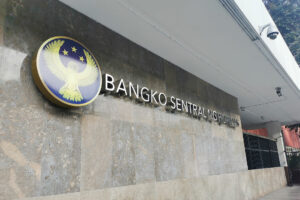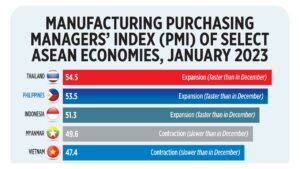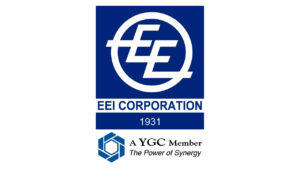Local banks responding more to policy decisions

By Keisha B. Ta-asan, Reporter
MONETARY POLICY in the Philippines could have a greater influence on the credit channels of domestic lenders amid increasing competition from foreign bank branches, the Bangko Sentral ng Pilipinas (BSP) Research Academy said.
In a discussion paper written by Laura Britt-Fermo and Neil Fidelle G. Lomibao, the BSP said changes in central bank regulation and bank market structures have policy implications.
“With bank concentration increasing over time, and with the onset of increased entry and competition from foreign bank branches and affiliates, our results suggest that monetary policy could have more power through the credit channel particularly via domestic banks in the future,” it said.
“It is therefore important that the monetary authority is well informed on how best to tap this influence via bank credit and lending rates in the transmission channel,” according to the paper.
BSP has been the most aggressive central bank in the region after hiking benchmark interest rates by 450 basis points (bps) since May 2022 to tame inflation and stabilize the peso.
The Monetary Board hiked borrowing costs by 350 bps in 2022, before delivering another 100 bps last year. This brought the target reverse repurchase (RRP) rate to 6.5%, the highest in 16 years.
Bank lending slowed for the most part of 2023 due to the BSP’s rate increases. Latest central bank data showed outstanding loans by big banks rose by 7% to P11.701 trillion at end-December, which was unchanged from November and the slowest in three months.
In the report, the BSP research academy said domestic banks respond more to policy rate changes than foreign bank branches as far as lending rates go because foreign lenders have access to additional funds from parent companies.
“With the caveat of external validity in mind, we find that domestic banks are more sensitive to monetary policy, bank characteristics and inflation than foreign banks, while foreign banks are more responsive to real GDP (gross domestic product) growth than domestic banks,” it said.
Foreign bank branches in the Philippines have a parent holding company overseas that allocates funding based on the macroeconomic fundamentals of the countries where it operates.
“Their information on the Philippines rely heavily on macroeconomic data and how they evolve over time, similar to the kind of information most available to global investors,” according to the report.
Foreign bank branches also rely on macroeconomic data in deciding how much to price loans and how much of the funds go into lending, similar to international investment banks, it said.
The global financial crisis exposed the vulnerability of foreign banks to the weaknesses of their parents, and this has raised questions about the impact of bank branches on monetary policy choices and the transmission mechanism in emerging markets like the Philippines, it said.
“This is especially important to examine now, given that foreign ownership limits on local banks have been increased recently in the Philippines.”
The Philippine bank liberalization law took effect in 2015, removing the 60% foreign ownership limits on local banks. Banks in Asia, Europe and the Middle East have expressed interest in coming to the Philippines.
“As of the end of 2015, in the same year the new banking liberalization law took effect, four foreign bank branches from Japan, Korea and Taiwan started operations in the Philippines,” the BSP unit said.
Amid a global coronavirus pandemic, geopolitical uncertainties, surging commodity prices and rising interest rates, a couple of foreign banks opted to leave the country.
In April 2021, Citigroup, Inc. announced the sale of its consumer banking business in the Philippines and other Asia-Pacific markets, while keeping its corporate banking presence.
It came to an agreement to sell its consumer banking arm to Union Bank of the Philippines (UnionBank). UnionBank will drop the Citi brand this quarter after completing the P72-billion buyout of Citi’s consumer banking business in the country.
The Manila branch of Dutch bank ING Bank N.V. also left the Philippine retail banking market in 2022 amid uncertain global conditions that affected its operations. However, it will keep its wholesale banking unit and global shared service operations in the country.
OWNBANKMeanwhile, OwnBank, the online banking platform of the Rural Bank of Cavite City, Inc., has partnered with Mastercard for a physical and virtual debit card.
“OwnBank and Mastercard’s collaboration expands digital payment options, enabling customers to access a wider array of digital financing solutions with Mastercard’s technology for secure, efficient and convenient online transactions,” the lender said in a statement.
The OwnBank virtual debit card would be launched this quarter, while the physical debit card would be launched in the second quarter, OwnBank said. It will also start a series of deals and offers for the debit card.
OwnBank users will get a free virtual debit card, while those who have fully upgraded their accounts and have met certain criteria will be eligible for a physical debit card.
The debit cards will feature contactless payment options and a Europay, Mastercard and Visa chip for enhanced security. Users can freeze their card, set transaction limits and reset their card PIN through the OwnBank app.
OwnBank entered the Philippine banking market in October and is regulated by BSP and insured by the Philippine Deposit Insurance Corp. — with Aaron Michael C. Sy




